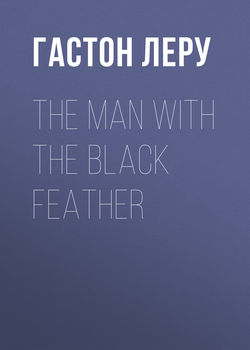Читать книгу The Man with the Black Feather - Гастон Леру - Страница 1
HISTORICAL PREFACE THE SANDALWOOD BOX
ОглавлениеOne evening last year I perceived in the waiting-room of my newspaper, Le Matin, a man dressed in black, his face heavy with the darkest despair, whose dry, dead eyes seemed to receive the images of things like unmoving mirrors.
He was seated; and there rested on his knees a sandalwood box inlaid with polished steel. An office-boy told me that he had sat there motionless, silent, awaiting my coming, for three mortal hours.
I invited this figure of despair into my office and offered him a chair. He did not take it; he walked straight to my desk, and set down on it the sandalwood box.
Then he said to me in an expressionless, far-away voice: "Monsieur, this box is yours. My friend, M. Theophrastus Longuet, charged me to bring it to you."
He bowed and was going to the door, when I stopped him.
"For goodness sake, don't run away like that!" I said sharply. "I can't receive this box without knowing what it contains."
"I don't know what it contains myself," he said in the same dull, expressionless tone. "This box is locked; the key is lost. You will have to break it open to find out."
"At any rate I should like to know the name of the bearer," I said firmly.
"My friend, M. Theophrastus Longuet, called me 'Adolphe,'" he said in the mournfullest tone.
"If M. Theophrastus Longuet had brought me this box himself, he would certainly have told me what it contains," I said stiffly. "I regret that M. Theophrastus Longuet—"
"So do I," said my visitor. "M. Theophrastus Longuet is dead; and I am his executor."
With that he opened the door, went through it, and shut it behind him. I stared at the sandalwood box; I stared at the door; then I ran after the man. He had vanished.
I had the sandalwood box opened; and in it I found a bundle of manuscripts. In a newspaper office one is used to receiving bundles of manuscripts; and I began to look through them with considerable weariness. Very soon it changed to the liveliest interest. As I went deeper and deeper into these posthumous documents I found the story related in them more and more extraordinary, more and more incredible. For a long while I disbelieved it. However, since the proofs of it exist, I ended, after a searching inquiry into them, by believing it to be true.
M. Theophrastus Longuet's reason for bequeathing this strange legacy to me was itself strange. He did not know me; but he had read articles by me in Le Matin, "his favourite organ"; and among the many contributors to that journal he had chosen me, not for my superior knowledge, an allegation which would have made me blush, but because he had come to the conclusion that I possessed "a more solid intellect" than the others.
Gaston Leroux
